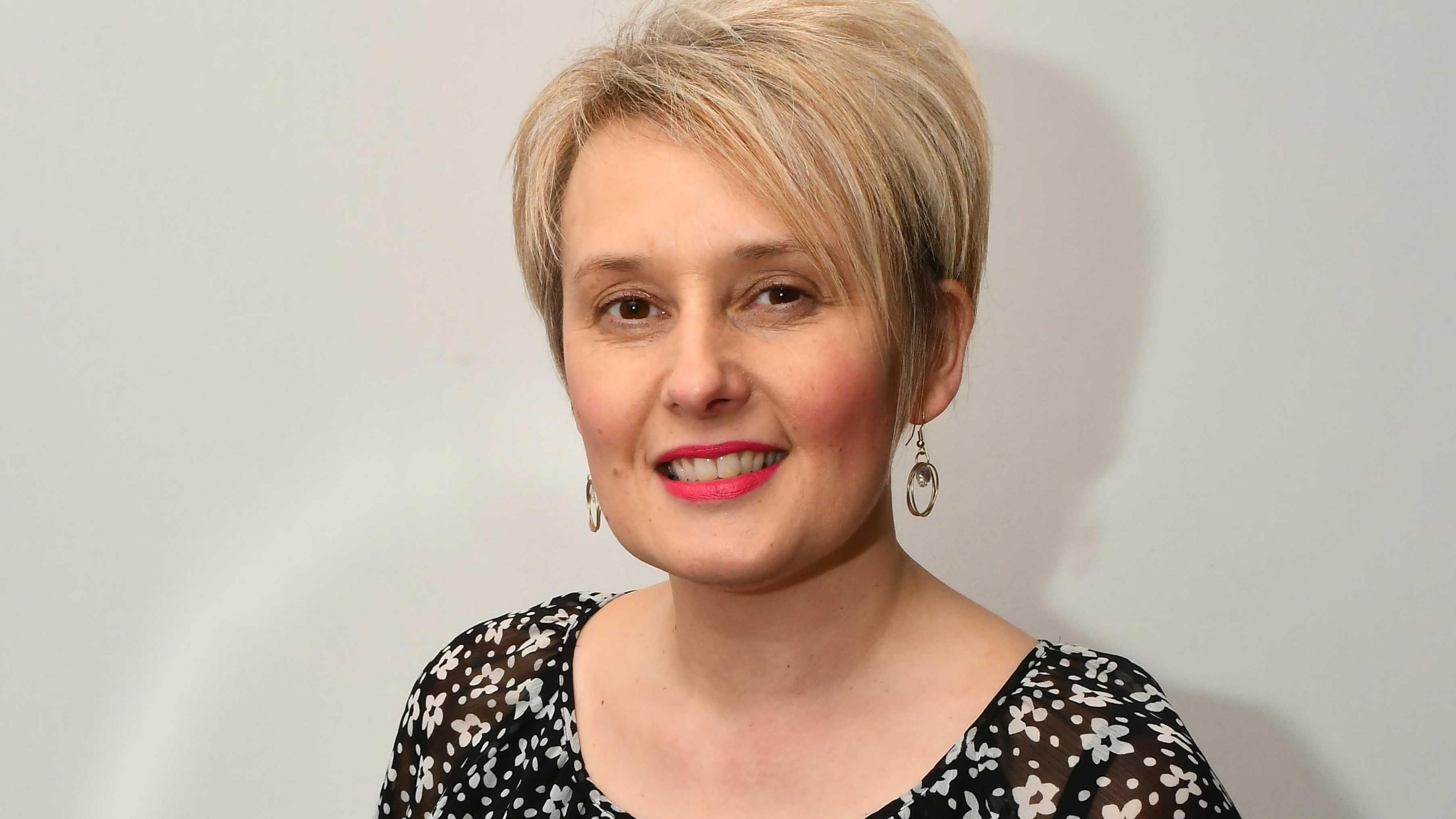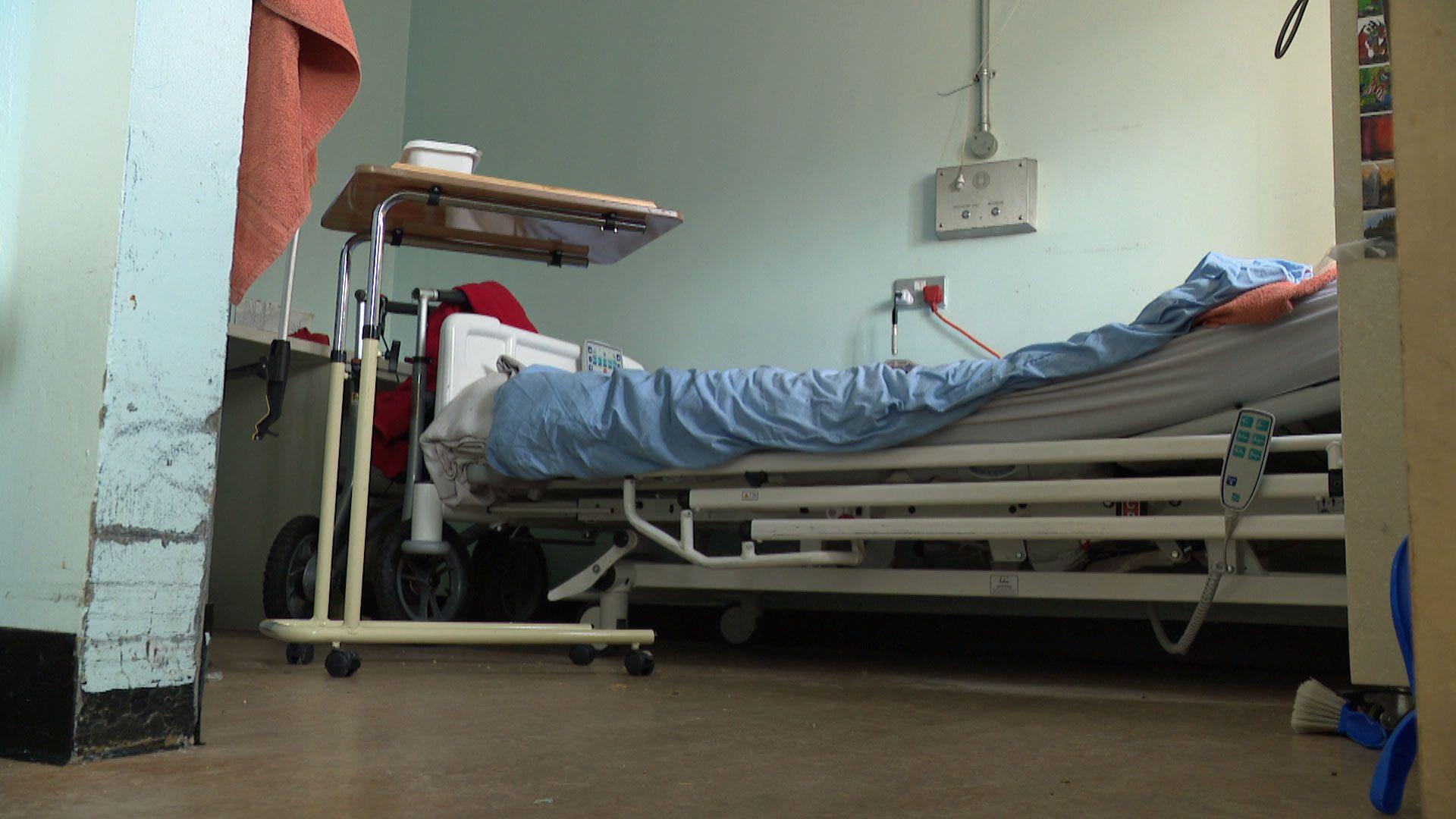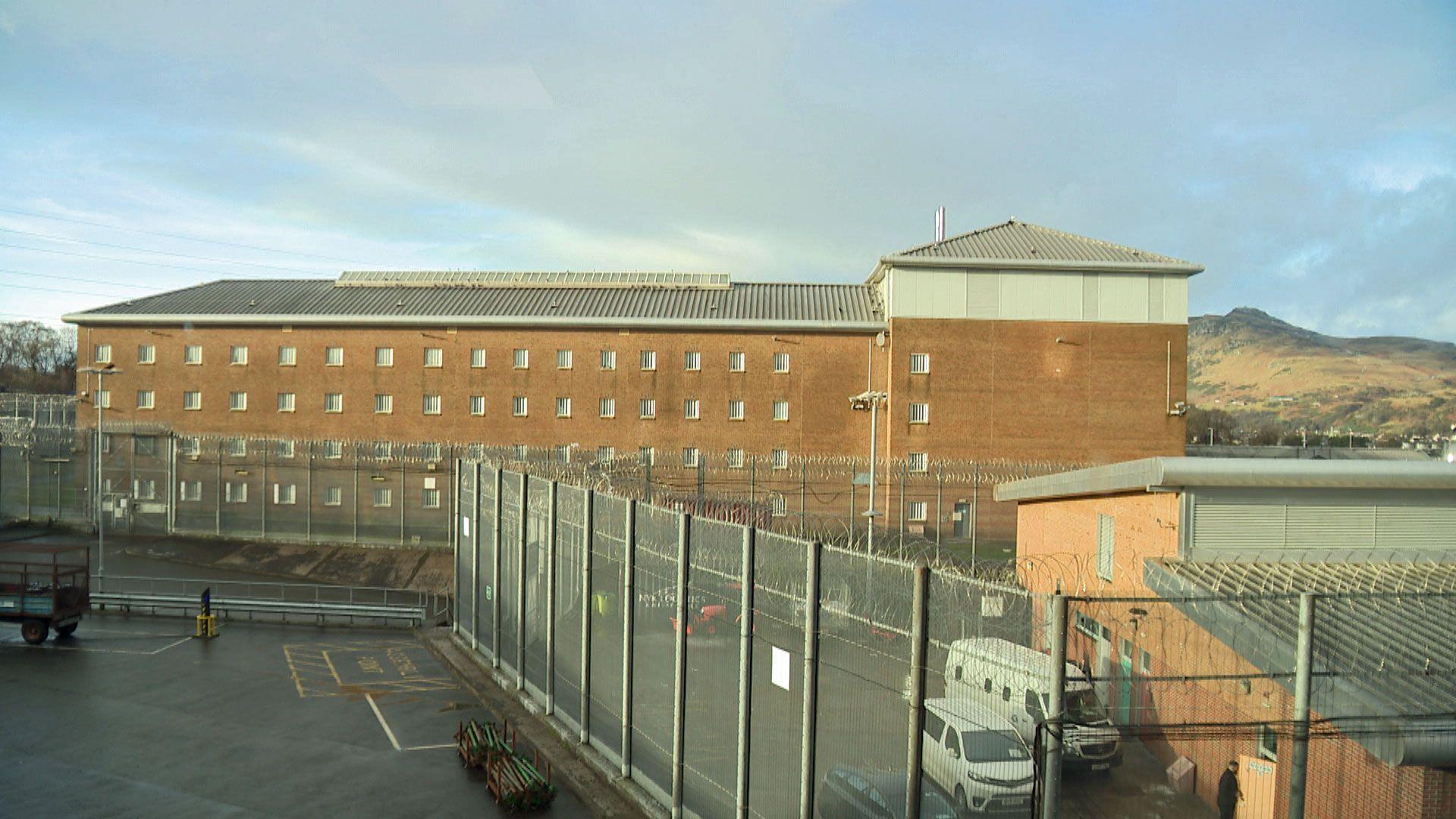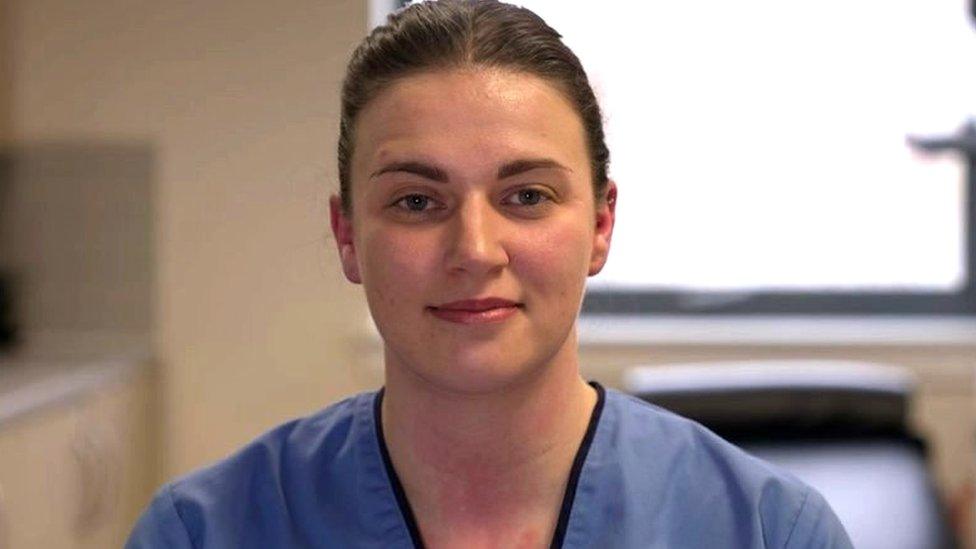Call for prison care home for ageing sex offenders

Natalie Beal said coping with the needs of prisoners in their 60s and 70s was becoming a difficult issue
- Published
The governor of a Scottish prison which houses a large number of ageing sex offenders has called for a secure care home to deal with elderly inmates.
Natalie Beal, the governor of HMP Glenochil, said coping with the social care needs of prisoners in their 60s and 70s was becoming a difficult issue.
Ms Beal said more than 50 of the 730 inmates at Glenochil had personalised healthcare plans and the prison was not built to cope with their needs.
The Scottish government said it had increased funding and was taking action over the "complex" prison population.
There are, on average, about 8,000 prisoners in Scotland at any one time and almost 700 of them are now aged over 60.
Ms Beal said the oldest inmate in HMP Glenochil, near Alloa in Clackmannanshire, was in his 80s.
She said the prison population was getting larger because of longer sentences and fewer people being released early.
The governor also said prisoners were getting older as more were being convicted of historical sex offences.

Many cells are not large enough for a hospital bed to fit in
The ageing prison population means more prisoners need social care such as assistance with washing, dressing or feeding.
Ms Beal also said many had health issues and mobility problems which required wheelchairs or hoists.
Some have had operations such as hip replacements and need rehabilitation exercises, she said. Others have dementia or neurological issues.
"We were not built with an ageing population in mind," Ms Beal said
"We don't have enough space," she said. "We don't have enough accessible cells.
"We need to think about something like a secure care home.
"We have people whose needs are wider than a secure prison regime."
Ms Beal said that a secure old people's home would need a higher ratio of trained staff to each prisoner and would be expensive.
The amount the Scottish Prison Service spends on social care has already been increasing for the past five years.
Figures released to BBC Scotland under freedom of information show that £636,000 was spent in 2018 but this more than trebled to £2.1m in 2022.
Ms Beal said £500,000 of the prison social care budget was spent at her prison.

Glenochil prison holds 730 inmates
Howard League Scotland, which campaigns for prison reform, said the percentage of prisoners over 50 had more than doubled in a decade, from 6.5% in 2010-11 to 14.8% in 2022-23.
It said it was very sobering to go into a prison and see banks of wheelchairs and hoists for prisoners with mobility issues.
The campaign group also said there were significant numbers of prisoners who required 24-hour a day social care because they cannot wash, dress or feed themselves.
Social care is the responsibility of Scottish Prison Service (SPS) while healthcare is an NHS issue.
A Scottish government spokesperson said it was increasing the SPS budget by 10% despite a tight settlement from the UK government..
“The safety and wellbeing of everyone in the prison estate is a priority for us and the Scottish Prison Service and we are taking action in relation to the increasingly complex prison population," they said.
"The additional funding for SPS is a crucial component of that, enabling them to continue to provide a safe and secure prison system.”
Related topics
- Published1 December 2023
